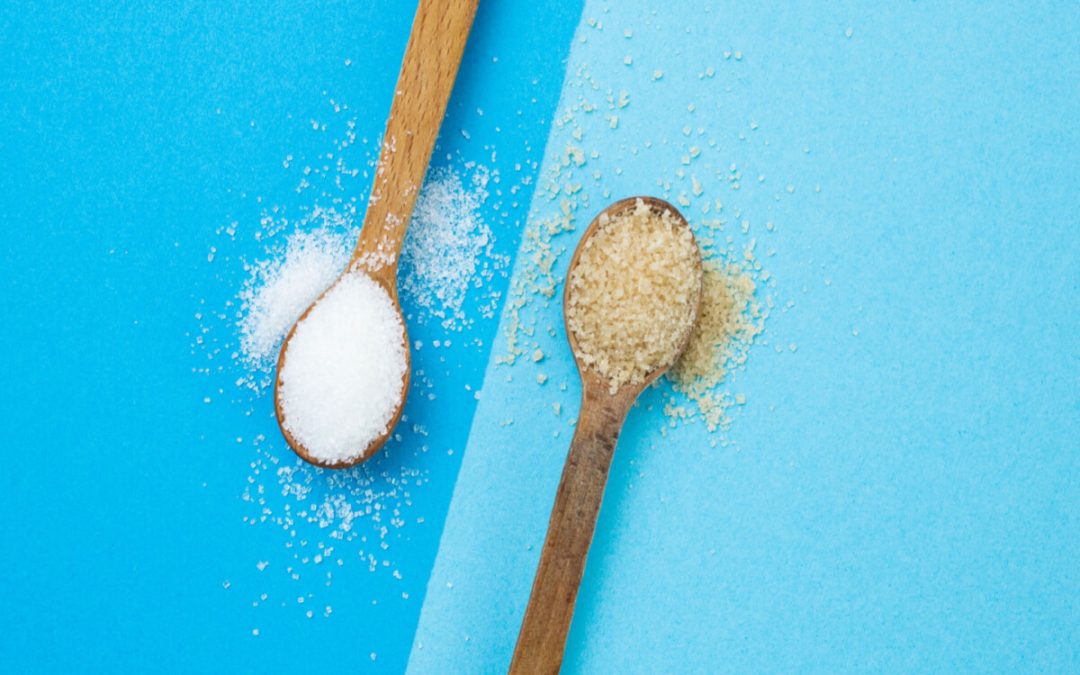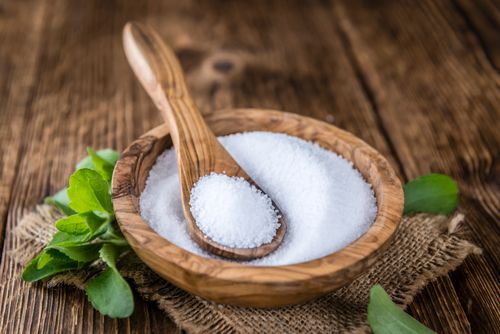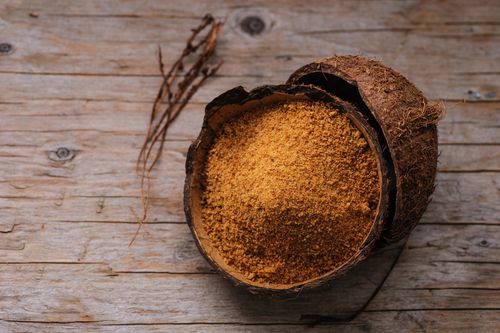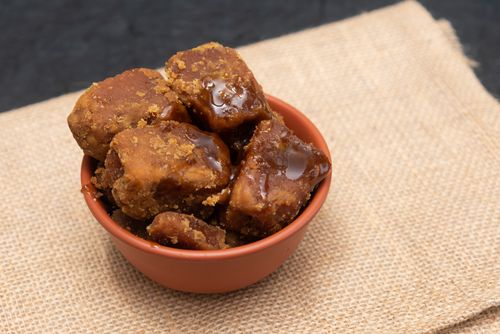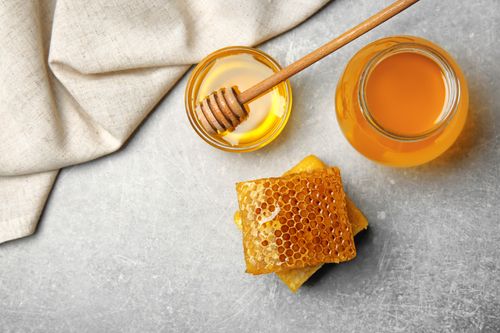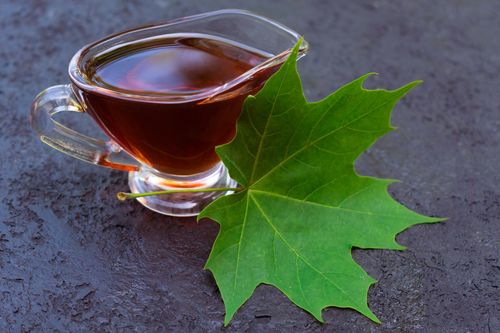While we share a rather magnetic relationship with our desserts and shakes, sugar is a harmful choice that breaks down our body in more ways than one. A survey conducted by WHO in 2019 observed that diabetes killed around 1.5 million people worldwide. It has become a global factor contributing to health problems. The toxic truth about sugar is that it makes the body vulnerable to numerous other diseases like high blood pressure, obesity and heart issues. Thus, brown sugar or white, excessive intake of either can be hazardous to your health.
This article will reflect upon the process of producing Brown and White Sugar, learning their nutritional value & properties, discussing the health benefits, risks and their substitutes. Thus, help you make a healthier choice between the two. So, before digging deep, let’s know about its process of production.
The Process
The initial manufacturing process is similar for both Brown Sugar and White Sugar. The sugarcane is first juiced and then boiled to form a thick syrup called molasses that eventually crystallizes. Next, the raw sugar crystals are formed when the crystallized sugar is centrifuged.
The final step of manufacturing is different for Brown and White Sugar. Then, it is processed further and the excess molasses is removed to create smaller crystals for producing white sugar. As for brown sugar, it is made by adding varying amounts of molasses to the refined white sugar.
Calorie Content
It will be a surprise to people who think brown sugar is healthier than white sugar. But, they both have almost the same calorie content.
Brown Sugar contains only 0.25 fewer calories than its counterpart, which is negligible. For instance, 1 teaspoon (5gm) of both brown sugar and white sugar will have 20 calories.
Nutritional Value
Brown Sugar is equally high in carbohydrates. However, unlike white sugar, which is considered to have empty calories, brown sugar contains some traces of micronutrients like iron, calcium, zinc, copper, potassium, phosphorus, and vitamin B-6. So, more or less, they are similar in nutritional profile.
Health Benefits and Risks of White Sugar
Benefits:-
- Provides an immense burst of energy– White sugar is a type of carbohydrate, also a micronutrient that provides energy to the body. The body breaks down sugar into glucose that can be readily used for energy and to carry out various functions.
- Improve brain functioning– Glucose is the source of fuel for the brain. The brain is responsible for thinking, learning, and retention. Since the brain is the most energy-demanding organ of the body, it requires a regular supply of glucose and white sugar can fulfil the requirements. So, white sugar in controlled quantities can improve brain functioning.
- Elevate Mood– Psychologically, sugar makes a person happy. It is considered a reward for a person. Also, sugar activates the pleasure point of our brain and causes a rush of dopamine. Thus, instantly lifting your mood.
- Heal wounds– White sugar paste when applied to a wound, rapidly liquefies, enabling desloughing. It helps in the formation of granulation tissue and negates the reproduction of bacteria.
Drawbacks:-
- Increase the chances of heart diseases– Excess consumption of white sugar leads to higher levels of LDL cholesterol. It is also known as bad cholesterol that accumulates and latches to the walls of arteries and causes blockage. This can lead to a heart attack or a stroke.
- Obesity– White sugar has tons of empty calories. A diet high in added sugar is rich in fructose and thus increases hunger pangs in people. Excessive fructose consumption causes resistance to leptin that regulates hunger and leads to obesity.
- Hormonal Imbalance– Excessive intake of sugar can increase blood glucose level in the body and push your pancreas to release more insulin. Excessive insulin production impacts the ovaries and produces more androgen hormones, such as testosterone. It is evident that sugar can disrupt hormones in the body.
- Sleeplessness– Sugar is known to reduce the quality of sleep. In order to function properly, an average adult needs 6-7 hours of deep sleep. Proper sleep is also essential for the body’s physical restoration and sugar is a culprit that hinders the process.
Health Benefits and Risks of Brown Sugar
Benefits:
- Aids weight loss– Brown sugar has fewer calories than white sugar. The molasses in brown sugar is known to boost metabolism. It also has other micronutrients. So, you can say that brown sugar helps in losing weight.
- Acts as an instant energy booster– Brown sugar is a simple carbohydrate that breaks down into glucose. Therefore, brown sugar can be added to your food if you feel the need for an instant supply of energy.
- Relives from menstrual cramps– Some cultures use brown sugar as a home remedy for easing period cramps. Just boil some water and add a tsp of brown sugar with crushed ginger and tea leaves to soothe the pain.
- Exfoliation– Brown sugar is a great physical exfoliant if you wish to have smooth skin. It eliminates dirt and tiny bumps over the skin.
Drawbacks:
- Irregular heartbeat- A sugary meal can increase your heart rate and make you uneasy. If you have mildly high blood sugar, your symptoms can be serious like palpitation, increased thirst, fatigue, etc. Brown sugar can be the cause of irregular heartbeat.
- Elevate blood sugar levels- Though brown sugar has lesser calorie content, it can affect your blood sugar levels similar to white sugar. It is also equally harmful to people with diabetes.
- Inflammation- Excessive sugar intake stimulates the production of free fatty acids in the liver. When the body digests these fatty acids, it causes inflammation. Poor dietary choices like consumption of excess sugar causes muscle and joint inflammation in the body.
- Weaken Bones- Brown Sugar increases the chances of osteoporosis and impairs the formation of bones by reducing osteoblast proliferation.
Alternatives to Sugar
Now that you know the nutritional content of both White sugar & Brown sugar and looking for a healthier alternative to these. Let us help you finger out a few substitutes for sugar that will preferably be great for your taste buds and your health. You can use stevia, coconut sugar, jaggery, honey and even maple syrup in your food and drinks.
1. Stevia
This plant-based natural sweetener, extracted from a plant named Stevia rebaudiana, is native to Central and South America.
It has no nutritional properties but also consists of zero calories. Thus, stevia leaf extract is gaining popularity as a substitute for sugar. It’s a boon for diabetic people with a sweet tooth, as stevia contains no additional carbohydrates. You can add it to your favourite food or drink.
2. Coconut Sugar
Both healthy and a popular choice among vegans, coconut sugar is a great substitute for sugar. Produced from the sap of coconut palm tree and thus undergoes minimal refining. So, it is organically extracted and then made into a syrup and eventually dried. Unlike Brown Sugar, which has little nutritional value, coconut sugar retains many nutrients like calcium, iron, zinc and potassium.
A teaspoon contains 18 calories, 5 grams of carbohydrate and 5 grams of sugar. It also consists of inulin, a soluble fibre that helps to control post-meal blood sugar spikes.
3. Jaggery
A non-refined substitute for sugar, made from sugarcane or a toddy palm tree, Jaggery is a popular sweetener in India, South East Asia and Africa. I
t is a great source of iron, calcium, magnesium, phosphorus, and potassium. Jaggery or Gur is also an excellent source of antioxidants that helps in reducing oxidative stress. 1 tsp of jaggery consists of 15 calories, 4g of carbohydrates. Nevertheless, you still need to restrain yourself from consuming more than required.
4. Honey
Though some may argue that honey is higher in calories than sugar, as per tablespoon contains 64 calories, 17 grams of carbohydrates and 17 grams of sugar.
It is also true that honey has other nutritional benefits that your normal white sugar doesn’t. Honey possesses anti-microbial and anti-inflammatory properties. It also has traces of iron, zinc and potassium. It also tastes sweeter than sugar, so to balance out, you may need less if you’re using it as a substitute.
5. Maple Syrup
Maple syrup is a sweetener, originating in Canada, extracted from the sap of the maple tree and considered extra sweet. Some also praise the nutritional value of maple syrup, even if it is a high-calorie food.
A tablespoon of maple syrup contains 52 calories, 13 grams of carbohydrate and 12 grams of sugar. Moreover, it is also rich in manganese that is essential for healthy bones and other nutrients like iron, copper, zinc, calcium and potassium. Recent research also has found that Maple syrup is great to lower cholesterol levels and help in preventing Alzheimer.
Conclusion
Since Brown and White sugar hardly make any difference in adding any nutritional value to your diet, you can choose a healthier substitute for these. Sugar is equally important to provide you with energy in the form of glucose. However, we sometimes inadvertently consume visible sugar in our teas/ coffees or invisible sugar in processed or baked foods or fizzy drinks. Also, make sure you limit your sugar intake and over the due course, make smart swaps to the healthier alternatives for overall health benefits.
To answer the question, is brown sugar really better than white sugar? No, it isn’t.
Frequently Asked Questions (FAQs)
1. Is it okay to have Brown Sugar every day?
Though brown sugar has some minerals like calcium, potassium, iron and magnesium, these minerals do not omit the risk of illness and diseases that are caused by brown sugar. Nutritionists and dieticians never advise to include visible sugar, whether white or brown, into daily meals. So, you can limit its consumption to 1-2 tsp per day along with your favourite tea or coffee. Nevertheless, if you just have it for enhancing the taste, you can opt for other healthier alternatives.
2. Is it bad to eat brown sugar?
No, it can’t be said that it is bad for health. The calorie content of brown sugar is comparatively less than white sugar. However, you must limit its intake in daily life.
3. Is brown sugar healthier than white sugar?
Though Brown sugar has a lesser calorie content, it cannot be said that brown sugar is healthier than white sugar.
4. Can a diabetic eat brown sugar?
The nutrient profile of brown and white sugar is somewhat similar. So, a diabetic person is not advised to have brown sugar regularly. They can definitely have it in moderation in their favourite desserts and drinks.
5. Which sugar is best for weight loss?
If we consider calorie content, brown sugar has comparatively fewer calories than white sugar, making it a better option for weight loss. However, there are alternatives that can be an excellent choice if you are looking to cut down on sugar. Stevia, jaggery, honey or maple syrup are great options and aids weight loss.
6. What are the benefits of brown sugar?
Brown sugars boost metabolism, increase energy and are great for relieving menstruation cramps.

